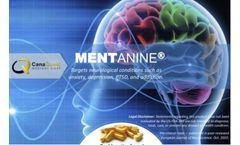Anxiety Depression Articles & Analysis
37 articles found
Mental health is a critical concern for all companies. One in five individuals will experience a mental health problem during their lives, according to the World Health Organization. For many people, the workplace is where mental health problems first begin and/or become exacerbated. ...
Managing emotions, handling life’s stresses, and coping with difficulties in a healthy way—especially during potentially stressful times like the holidays—is a powerful tool for better overall health. 6 tips to help manage emotional wellness during the holidaysExercise Evidence suggests physically active people have lower rates of depression and ...
Mental health is a huge focus during the month, as studies have shown that men are statistically far less likely to seek help for things like anxiety and depression. Men seek treatment less frequently for a variety of medical conditions, largely due to a culture that encourages men to be stoic and deal with things themselves. ...
Within the first year of Covid-19, there has been a 25% increase in anxiety and depression worldwide. Not being able to leave the house to socialise with friends, working from home, and being unable to interact face-to-face with extended family has created an environment that allowed mental health issues to enter people’s lives. ...
Introduction By leveraging Connectomics to trace functional connectivity, seven large-scale brain networks have been identified. These networks have the most dominance over cortical function in the brain, and each serves an overarching common function. While some networks are familiar, many networks, and their constituents, are newly discovered1. These major networks control brain ...
The Company is focused on treating neurological conditions, such as epilepsy, anxiety, depression, and Post Traumatic Stress Disorder “PTSD,” including ...
Improve Your Mental Health & Happiness To Increase Recovery Speed Due to a number of biochemical, personal, and social interactions, depression and anxiety may be present in the aftermath of a stroke. Because there is such a prevalence of stroke survivors experiencing chronic arm and hand paralysis, exploring how to support the needs of those living with ...
A study shows that adults with spinal cord injuries had a higher incidence, among other things, of adjustment reaction, anxiety disorders, depressive disorders, alcohol and drug dependence. ...
By having regular HBOT sessions, it has been proven scientifically that favourable results were registered in terms of: Memory loss prevention Enhanced cognitive performance Facilitated learning process Recovery from PTSD, anxiety and depression So, just to be sure that you have all the information that you need, let’s do a quick recap: Are ...
Meditation is often thought of as an avenue to clarity and self-awareness, but it may also be an avenue to better brain health. Emerging research suggests meditation may have significant benefits to brain health, ranging from improved mental and behavioral health to enhanced cognitive function. In this article, we will break down how meditation helps the brain and provide helpful tips for ...
Many neurological diseases, including Alzheimer’s disease, can be thought of as continuums, whether the presence and manifestation of the disease are different depending on the stage of the disease. In this article, we provide a high-level overview of the stages in the Alzheimer's disease continuum, with a focus on preclinical Alzheimer’s disease and its importance in patient care and ...
Keeping everything bottled up to face on my own only caused me to suffer severe depression, anxiety, self-isolation, and one hell of an eating disorder that I still struggle with to this day. ...
Alcohol withdrawal leads to an increase in CSF1 in these neurons, mimics synaptic changes in glutamate transmission after alcohol withdrawal, and results in increased anxiety. A new study by scientists at Scripps Research shows that the anxiety that develops during abstinence from excessive drinking can lead to relapse, and that anxiety may be ...
Parkinson’s disease is a progressive neurodegenerative disease that is most commonly known for affecting movement. It primarily impacts dopaminergic, or dopamine-producing, neurons in a specific area of the brain known as the substantia nigra. Typically, symptoms develop slowly over years and continue to worsen as the disease progresses. While the manifestation of symptoms tends to vary ...
And the beauty of it is, you can do your training anywhere at any time, even before bedtime, if that suits you. Anxiety and Depression Our state of mind can also have a huge impact on the quality of our sleep. There are many benefits from exercise and breath training for people who are experiencing anxiety or depression. ...
As the Omicron wave finally subsides and coronavirus restrictions are lifted, more and more employers are beginning to bring their employees back to the office. For what seems like an eternity but is actually a little over two years, many people worldwide have been working remotely as office buildings, together with schools, were believed to be the prime places for the virus to spread. ...
For people who experience migraine, daily life can be stressful and unpredictable. People with chronic migraines experience symptoms at least 15 days a month, preventing them from completing typical activities. Migraines are almost always linked to mental health because they impact many aspects of life. Understanding how your mental health affects migraines and vice versa can help you manage ...
ByCEFALY
Fibromyalgia is a disorder difficult to diagnose and is often accompanied by depression and anxiety. The symptoms are so wide-ranging that a comprehensive battery of tests is required to properly diagnose it. ...
There is no cure yet, but there are multiple treatment options offering varying degrees of relief. CRPS can cause anxiety and depression and is often difficult to diagnose, leading to increased frustration and anxiety. ...
Patient History: Pre-mild® The patient’s history showed degenerative disc disease and symptomatic lumbar spinal stenosis. The patient had anxiety and depression. Treatment history included ESIs, facet injections, and various medication therapy including chronic opioid therapy. ...
















